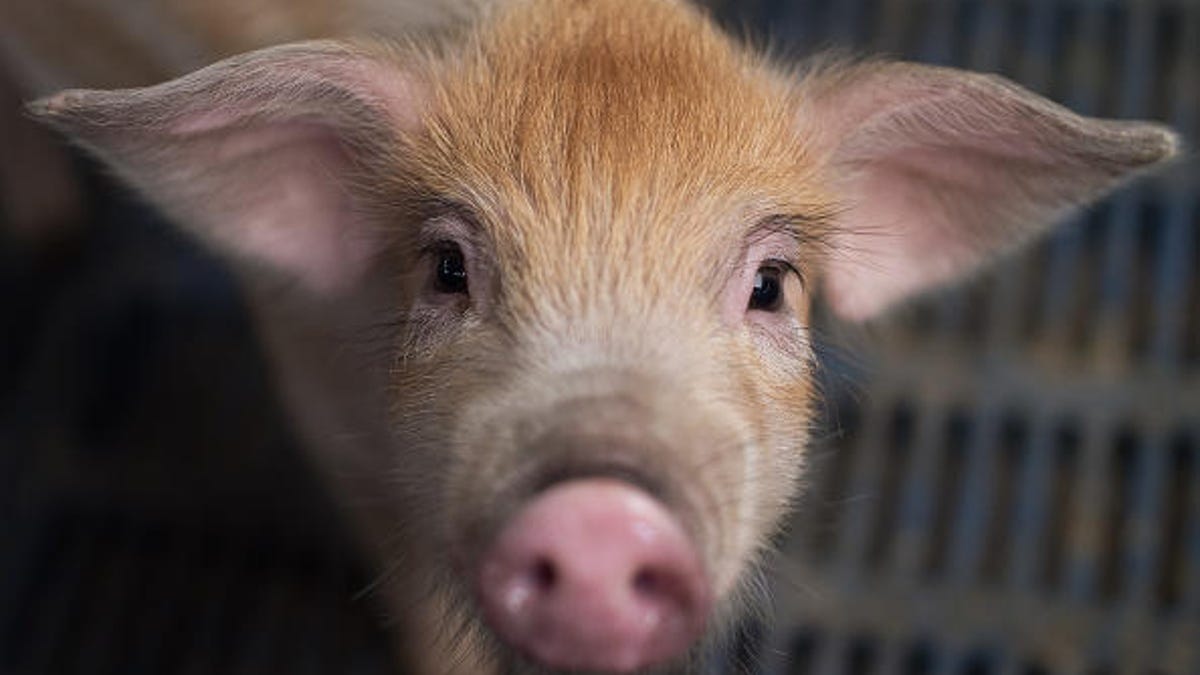Chinese scientists say pig organ transplants may be 2 years away
If the Chinese government says yes to clinical trials, the first pig-to-human organ transplants could be ready soon.

This pig could give you a heart or a liver and save your life.
The waiting list for organ transplants could be shortened in two years, but not without permission from authorities.
Scientists are waiting for the green light to conduct clinical trials transplanting genetically modified pig organs into humans, the South China Morning Post reported.
If the government allows the trials to go ahead, pig organ transplants will be added to a growing list of new surgeries pioneered in China. This year, a man received an ear transplant from a ear grown on his arm. And in April, Italian surgeon Sergio Canavero said the first human head transplant could be less than a year away.
The proposed trials are part of a national xenotransplantation project funded by the central government and participated by more than 10 research institutes. A successful test could be big news for China, where health authorities quoted by SCMP say more than 1.5 million people require a transplant every year (Chinese media says there are more than 300,000 patients) but fewer than 10,000 organs are donated. The country is also home to the world's biggest pig-cloning farm, BGI, which could eventually provide pigs bred for organs for transplants.
Pig organs are preferred for xenotransplantation, because it is deemed most similar to human organs in terms of size and physiology. Scientists have also seen positive results when tests are conducted on animals -- a baboon that received a pig's heart at the National Institutes of Health in the US survived more than two years. And in China, 400 cornea transplants have been performed from pigs to humans with a 95 percent success rate after the government permitted it in 2015,.
CNET has reached out to participating research institutes for comments.
iHate: CNET looks at how intolerance is taking over the internet.
It's Complicated: This is dating in the age of apps. Having fun yet?

